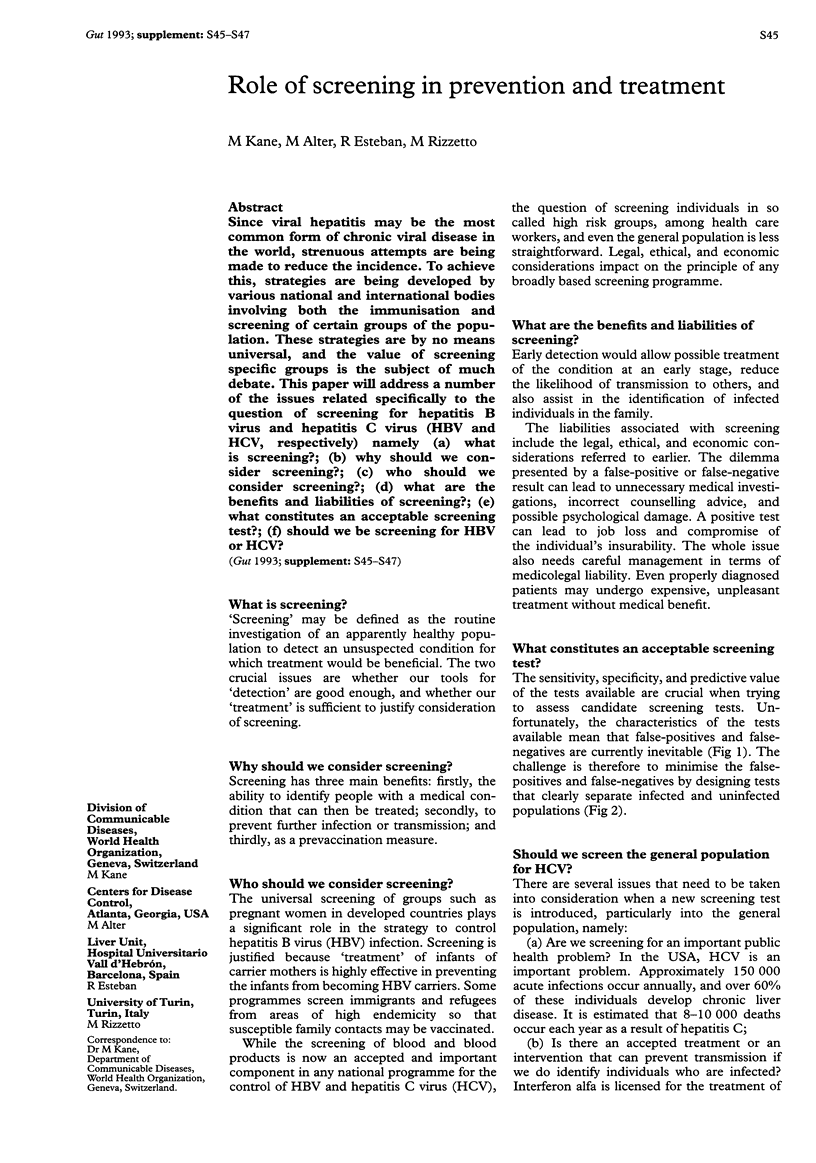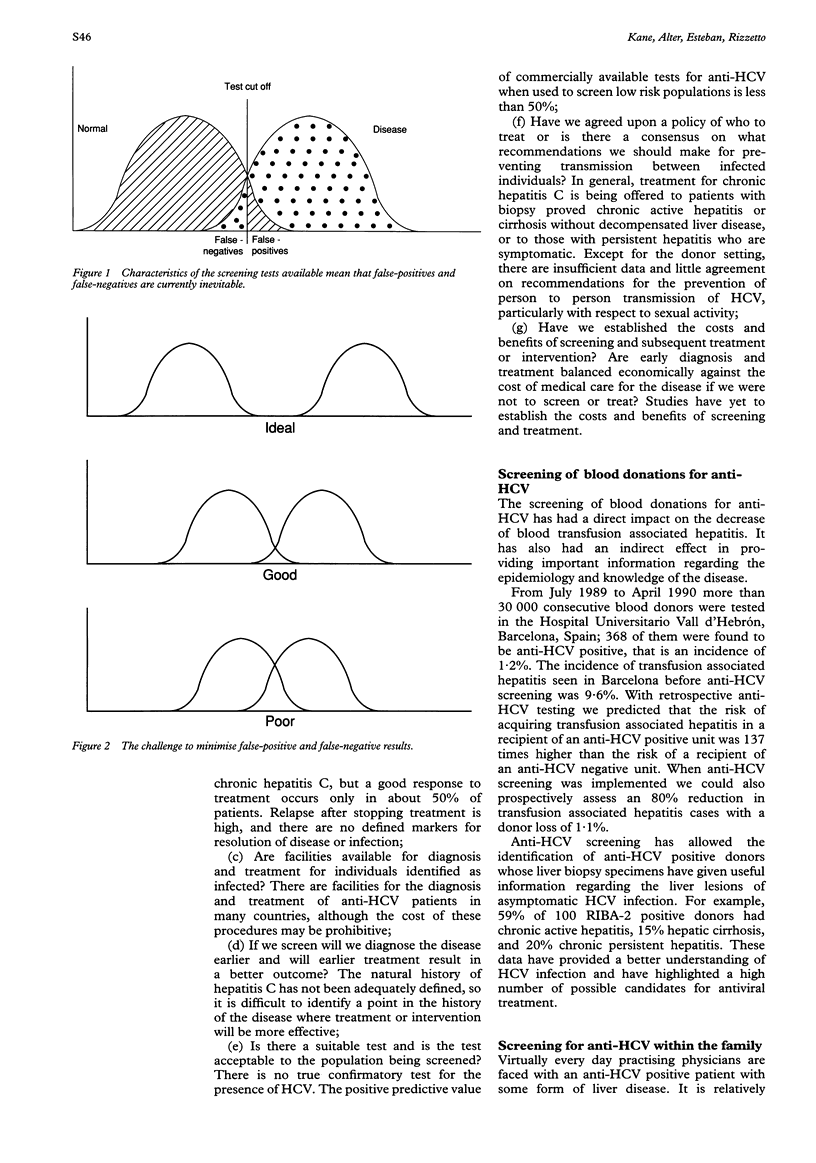Abstract
Since viral hepatitis may be the most common form of chronic viral disease in the world, strenuous attempts are being made to reduce the incidence. To achieve this, strategies are being developed by various national and international bodies involving both the immunisation and screening of certain groups of the population. These strategies are by no means universal, and the value of screening specific groups is the subject of much debate. This paper will address a number of the issues related specifically to the question of screening for hepatitis B virus and hepatitis C virus (HBV and HCV, respectively) namely (a) what is screening?; (b) why should we consider screening?; (c) who should we consider screening?; (d) what are the benefits and liabilities of screening?; (e) what constitutes an acceptable screening test?; (f) should we be screening for HBV or HCV?
Full text
PDF




